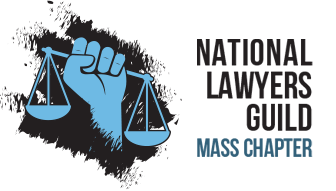The State’s Special Commission on Combatting Antisemitism held its first meeting on October 29, launching a process which may have profound implications for free speech, academic freedom, education, hate crimes designations, and all anti-racist struggles in the Commonwealth. Many Commission appointees represent or have ties to major Israel-aligned organizations in the State: The Anti-Defamation League (ADL), the Jewish Community Relations Council (JCRC), The American Jewish Committee New England (AJCNE), the Holocaust Legacy Foundation, the Lappin Foundation, the Jewish Federation of the Berkshires, and Combined Jewish Philanthropies (CJP).
The mandate of the Commission is to create a task force responsible for reporting on antisemitism data, recommending legislative and budgetary proposals to implement the national strategy on antisemitism in the Commonwealth with a focus on education and the hate crimes statute.
From the outset, there have been red flags about the genesis and orientation of the Commission, with significant questions about its ability to be a non-partisan Commission. The Commission came about through a budget process with no public input. Immediately upon learning of this back door legislative process, a group of over 1,100 individuals and 60 organizations signed on to a letter asking the MA state legislature to address antisemitism in an open, democratic way, grounded in a framework of equity and collective liberation – rather than through outside sections of the state budget with no public input. Their letter stated, “Because addressing antisemitism, along with other forms of hate and bias, is such an important issue, it is critical that we get it right.”
The letter was signed by Jewish, Muslim, Christian, labor, education, student, civil rights, and other organizations and individuals who have long fought for justice and equity in the Commonwealth. An alliance of organizations called Together for an Inclusive Massachusetts (TIM) emerged from this original grouping to demand that the voices of a full spectrum of Jewish and other anti-racist voices have input into the work of the Commission and to ensure that it does not become a vehicle for imposing an Israel-aligned agenda into state government.
TIM has several concerns about the work of the Commission.
What constitutes antisemitism?
The commission mandate lacks clarity about what constitutes antisemitism. One fear is that highly contentious definition/s of antisemitism like the International Holocaust Remembrance Alliance (IHRA) definition of antisemitism will be adopted. As the ACLU has said, “The clear objective behind the IHRA definition is the suppression of non-violent protest, activism, and criticism of Israel and/or Zionism…” (Jan. 2023). A bill attempting to codify the IHRA definition into MA law, sponsored by Commission member Steve Howitt, was sent to study in the MA legislature earlier this year. Rep. Howitt has long been an Israel ally, AIPAC supporter and sponsor of anti-BDS bills in MA. If he gets his way, BDS may also be outlawed. Equating criticism of Israel and/or Zionism with antisemitism has been widely disputed by legal and Jewish communities (including the ACLU, Palestine Legal, scholars of genocide like Raz Segal) who charge that this definition has been weaponized to shut down Palestine solidarity, with implications for all protest movements.
Whose voices will be heard?
Large sectors of the Jewish population of Massachusetts explicitly oppose Israeli policies of mass extermination, apartheid, and settler colonialism. Jewish Voice for Peace alone has more than 22,000 supporters in Massachusetts. Yet not one single member of the Commission is from a Jewish community that does not represent an Israel-aligned perspective. There is good reason to question whether the Commission will be open to alternate views, especially views of thousands of Jews and allies who oppose Israeli policies. There is no representation of scholars of Judaism, legal scholars, teachers, or students on the Commission, to say nothing of Palestinians, Muslims or other impacted communities. In short, the Commission is stacked to favor a partisan agenda.
What is at stake?
Nothing short of constitutionally protected political speech is at stake in the work of this Commission. If the Commission determines that the slogan “From the river to the sea” is hate speech, or that “Free Palestine” is antisemitic (as it well may do), the Commission will open the door for a McCarthyist crack down on workplaces, students, universities, and protestors. Teachers, librarians will be tasked with censorship of history and social studies materials. HR executives will be required to discipline or terminate employees. Healthcare and teaching institutions will be prohibited from including a broad range of educational topics. At the first meeting of the Commission, one of the Commissioners emphasized his position that “there are limits to free speech.” This could be a five alarm fire for protected speech in Massachusetts.
What can the legal community do?
First and foremost, it is imperative that lawyers scrutinize Commission proceedings, including keeping an eye out for violations of open meetings laws. These meetings are public and recorded. Second, we welcome interested lawyers to join TIM and to provide legal input to the proceedings. There are many areas of expertise that we hope lawyers and legal scholars can testify about: freedom of assembly, speech and expression; religious freedom and related first amendment issues. We hope legal scholars can also inform debates about genocide, zionism and legal implications of weaponizing antisemitism. Finally, it is critical that lawyers spread the word about what is at stake to others who value constitutionally protected free speech and be ready to challenge partisan interpretations of free speech.



